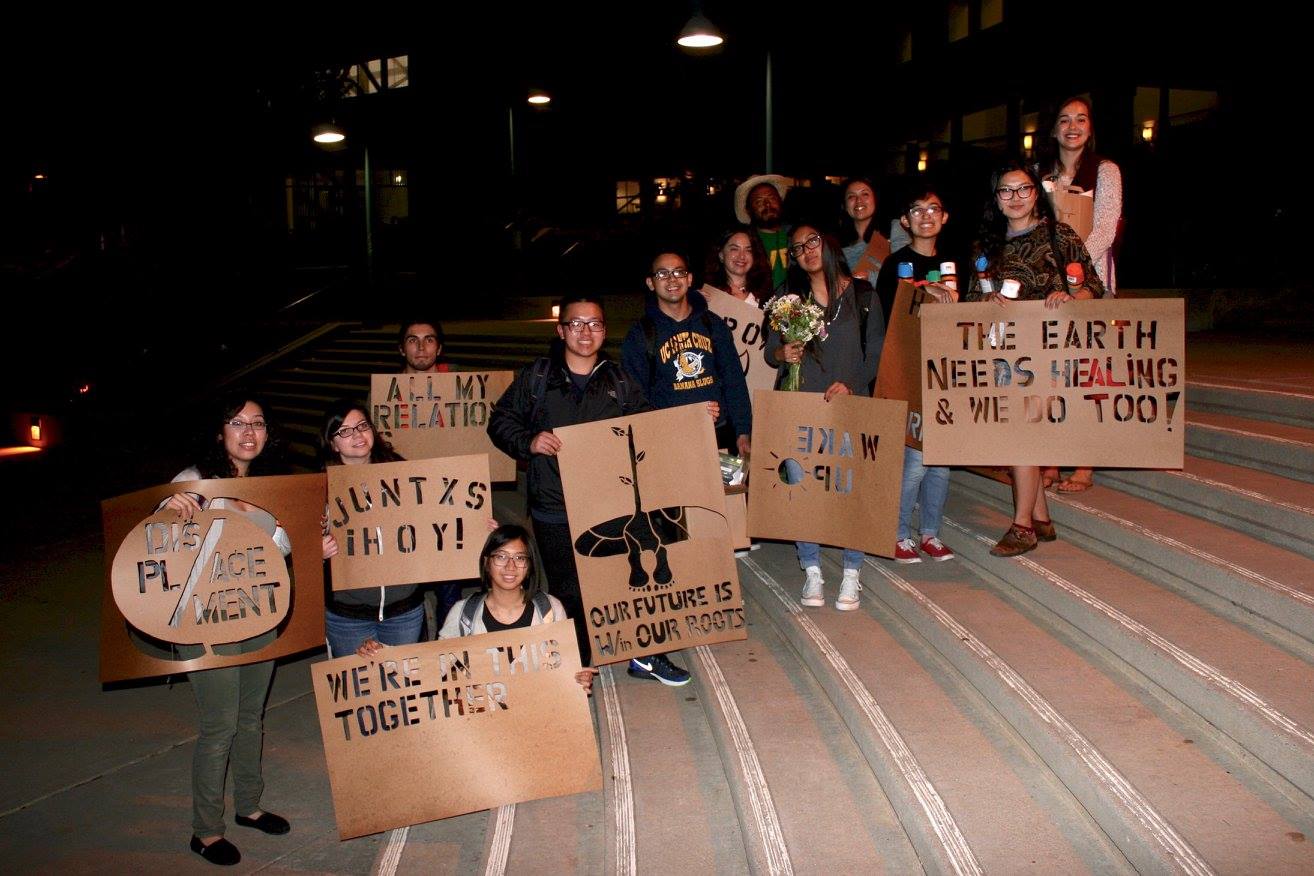The Chancellor’s Achievement Awards honor and showcase people and programs that have made outstanding contributions to furthering diversity, inclusion and excellence at UC Santa Cruz. Eligible recipients include undergraduate and graduate students, student organizations, academic, and staff employees, campus units (e.g., offices, departments or divisions) and academic or administrative programs.
The Chancellor’s Achievement Awards for Diversity highlight diversity as a campus priority and a necessity for maintaining institutional excellence. In addition, the awards process, event and publicity showcase campus diversity achievements and best practices to internal and external audiences; and enable students, faculty and staff to communicate and document their achievements.
The People of Color Sustainability Collective (PoCSC) is an initiative created by the Ethnic Resource Centers, housed under the American Indian Resource Center that works in partnership with Colleges Nine and Ten, and the Campus Sustainability Office. The mission of the People of Color Sustainability Collective is to highlight the work that communities of color have done to advance sustainability and to redefine sustainability to include diverse cultural interpretations.
Students from the People of Color Sustainability Collective have played a big role in creating spaces on our campus to engage in a critical dialogue about issues of race, class, gender, culture and sustainability. PoCSC students (all student interns at the American Indian Resource Center) engage our campus through their social media awareness campaign, events, workshops, tabling at campus event, and through research on inclusivity in campus sustainability movements. The events that PoCSC students have facilitated focus on topics ranging from how our identities are shaped through our relationships with culture, nature, and family; discussing the perceived gap between environmental and social justice; how to use art as a tool for community resistance against environmental injustices or about global food sovereignty efforts.

